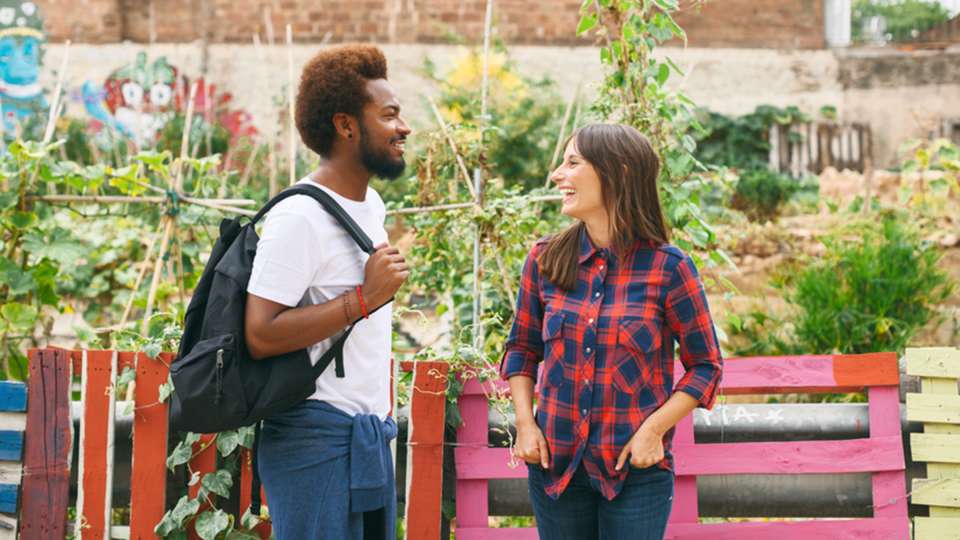
People in Seattle love healthy eating, and we’re also obsessed with taking care of the environment—but sometimes these two things can be at odds. You know eating lots of fruits and vegetables is good for you. But is it also good for the earth? The answer is a bit complicated.
You’ve probably heard that processing meat takes way more fuel and energy and contributes more to greenhouse gas emissions and pollution than, say, vegetable farming. While this is generally true, it also ignores other important factors in sustainability.
Since agriculture accounts for up to a third of the world’s greenhouse gas emissions, which, in turn, are a cause of global warming, it’s important that what we eat is healthy for us as well as the planet.
What is food sustainability?
To be truly sustainable, food doesn’t just have to be good for the environment. It also has to be affordable, nutritious and culturally accepted (as in, less ick-inducing than that cricket flour your trend-obsessed friend is trying to convince you to eat).
Even though fruits, vegetables and other crops tend to be more sustainable than meat, how they are grown also has a big impact. Planting the same thing year after year doesn’t introduce much diversity into the soil, and tilling the same dirt over and over into a flat brown field—as is common in large-scale, industrial farming—doesn’t promote diversity, either.
That’s because there are millions of microbes living in every gram of dirt, says Sally Brown, Ph.D., a research associate professor at the UW School of Environmental and Forest Sciences. These microbes are vital to crop health and resilience, which can lower production costs and reduce the need for chemicals.
“It’s like "Horton Hears a Who!" on steroids. Soil is alive and has to be nurtured the same way that crops have to be nurtured,” says Brown.
This means that vegetables and other foods that are generally more sustainable to grow may not be as good for the environment if the farmer isn’t also mindful of keeping the soil healthy and avoiding pesticides and other chemicals, says Sean Schmidt, a sustainability specialist at UW Sustainability.
How to eat more sustainably
You may not be a farmer, but you can still make mealtime a more sustainable event. Here are some easy ways to help the planet and enjoy your food at the same time.
Choose local
Eating food that’s grown or made locally decreases the amount of transportation from farm to fork, which cuts down on fossil fuel emissions, plastic packaging and other things that pollute the planet. Local growers may have more crop diversity, which is healthy for the soil. Even if they aren’t certified organic, they may not use pesticides or other chemicals that are bad for the soil and the environment. If you’re unsure, ask. Whether you live in the city or out in the country, there’s probably a local farmers market near you.
Adjust your meat intake
It’s no secret that more fuel, energy and water go into that package of ground beef you bought at the store than the carrots you picked up from the local farmers market. While meat is an important part of many people’s diets for the protein and animal-specific vitamins it contains, you don’t need to eat meat every day (and it probably isn’t the best thing to do for your health). One trend is to have “Meatless Mondays” where you abstain from eating meat once a week. Or make up your own schedule and plan meatless meals every other day or every weekend.
Go organic
Mandated organic practices such as the use of fewer chemicals help keep the soil, and therefore the planet, healthy (though, contrary to popular belief, organic farmers are still allowed to use some chemicals). If you can’t buy all organic, since it tends to be more expensive, focus on switching to organic for the produce that is part of the “dirty dozen,” which typically is subjected to more pesticide use if it isn't organic.
Eat fewer processed foods
Yes, eating healthier foods like fresh produce and whole grains instead of heavily processed foods can be more expensive, but there are ways to remedy that. Compare the prices of healthy foods at grocery stores near you to see which store is most cost-effective. You can also buy frozen and canned produce, which is usually cheaper than and just as healthy as fresh produce. If you’re a lower-income resident of Seattle or King County, you may also qualify for the Fresh Bucks program.
Get your compost on
If you’ve been slacking off on composting, don’t. Not only is it a City of Seattle-mandated practice but it’s also good for local soil. Everything you throw into your compost bin eventually ends up providing nutrients to the locally grown food you buy.
Get your hands dirty
Growing your own food is about as local as your produce can get. Not only can you choose how you grow things and eliminate the need for transportation, you can also gain a newfound appreciation for the earth. But, you ask, what if I don’t have any space to grow food in my tiny, yard-less studio apartment? You could join a local P-Patch, where members of a community are designated a shared area to grow their own food. Or, if your building has a rooftop deck, ask if you can take over a small corner of it for a container garden.
The bottom line
Food sustainability is a gigantic, complex issue that can seem overwhelming. But focus on the small things you can do to help the planet.
“No one is perfect and it is often hard to be 100 percent sustainable, but even making small changes makes a difference,” Schmidt says.

 Healthy ideas for your inbox
Healthy ideas for your inbox





